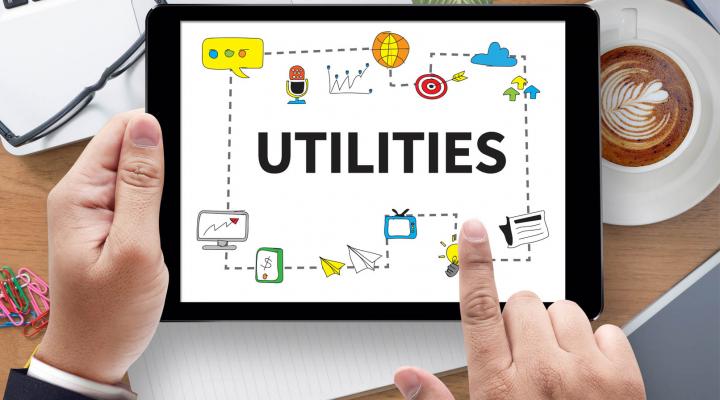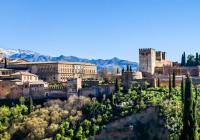
Once you’ve moved into your dream home in Spain, one of the first things you’re going to need to do is connect your utilities: without these you won’t be able to do even the simplest of tasks, such as turn on the lights or pour a glass of water. Your Spanish utilities might not feel important, but without them your home simply won’t feel like a home!
The good news is that setting up utilities in Spain is incredibly simple, and isn’t a complicated or time-consuming process. To help you get moved in and comfortable, here’s everything you need to know setting up your gas, electricity and water in Spain:
Utilities in Spain: An Overview
The first thing you need to know about utilities in Spain is that the Spanish utility market is fully liberalised. This means that you can shop around to find the best deal for all of your utilities, just as you do in the UK, and that you will have a host of provider options available to you. These options will vary from region to region though, with not all providers operating nationally. The one provider you won’t have any choice over is your water provider: the provider for each home will already be set up, and water is provided and operated at local levels, either directly by the municipality or through a private company.
The process of setting up your utilities in Spain will differ depending on whether you have purchased your dream Spanish home or are renting it, and whether you are renting on a short term or long term basis. Most rented homes will already have an existing connection to the local electricity network in place, which should make it easier to connect and some monthly rental costs will already include your utility bills, which means you don’t have to worry about connecting these at all. If this is the case for you, be sure to check what you’re actually paying for before you sign your rental agreement; if it isn’t then you should be able to switch to different utility providers to get the best financial deal for you. If in doubt, check with your landlord first!
If you’re buying your own property in Spain then the world is your oyster about which utility providers you will choose. Just remember that the process of setting up your utilities can take a while so if your property is already connected to a network this may well be appealing; if you do want to change providers before you move in, try to do this as far ahead as possible, to minimise the outage that you experience.
Electricity and Gas in Spain
Gas usage isn’t as common in Spain as it is in other European countries; most houses use electricity instead, and only certain towns and cities have access to mains gas supply. If you live in one of these regions then you may find that gas is a cheaper alternative to electricity, but for the vast majority of people living in Spain, electricity is the only option. If you would prefer to use gas then you can consume bottled gas in your home by arranging regular deliveries with a gas distribution company. However, you will need to check your gas appliances annually, for safety purposes, and keep on top of how much gas you have left so that your supplies don’t run dry.
It’s more likely that you will use electricity in your home. Spain has a good and wide-reaching electricity network. Electricity is very expensive in the country right now, and usage can be high as a result of running air conditioning units in the summer and heating in the winter, but most Spanish homes now have smart meters, which makes it easier to keep on top of how much energy you are using (and what your bills will be).
When choosing which provider will work from you, you can choose a provider from either the free market (mercado libre) or the regulated market (mercado regulado). Energy providers in Spain typically operate in both markets, but since 2019 they are required to operate under a different name in each one. This should make it easier for consumers to differentiate between providers and find the best deal for them. However: whilst, technically, you can choose your provider, your options may be limited in certain parts of the country, particularly if your home is in a rural or remote location. The best way to find the right option (or maybe even the only option) for you is to search online, contact providers directly, ask neighbours who their provider is, or even ask questions in local ex pat forums. When you do find the right provider, look through their range of contract options: this will still allow you to choose the best deal for you.
Choosing the Right Tariff
Even if you don’t have a huge range of providers to choose from, those providers should offer you a wider range of tariff options. These will include fixed-rate tariffs, off-peak tariffs, and low use tariffs: the key is to understand how you will use your electricity, and use this information to determine the best deal for your usage.
If you still haven’t found the right electricity provider for you then some of the main Spanish energy companies to research include:
You might also wish to use tariff comparison websites, to give you an extra helping hand in finding the right tariff for you. One such English-speaking comparison website in Spain is Si Compare.
Exploring Renewable Energy Options
If you’re environmentally conscious then there are also a range of green energy options available in Spain, with the country focusing significantly on renewable energy production in recent years. In 2020, almost 50% of Spain’s green energy was produced by wind power, with solar power accounting for 14% of production and hydroelectricity accounting for 25% of production. Most providers will offer a green tariff option, so these choices should be easy to find.
Another option for focusing on green energy is installing solar panels in your home. Due to a recent change in Spanish law, demand has been growing for these panels, particularly as installation costs are reducing. This is a still a big financial investment, but it’s worth researching to see if it is the right option for you.
Connecting Your Electricity and Paying Your Bills
Once you’ve put in the work to choosing your electricity supplier, signing up is the easy bit! You can do this either online or on the phone, and your provider is likely to ask you for the following information, so be sure to have it to hand before you pick up the phone:
- Your proof of ID
- Your Spanish NIE Number
- Your bank account details
- Proof of your address
You will also need your bank card to hand, as setting up a new provider is likely to incur some fees: these will vary depending on the provider you use. You may be asked if you want to set up an automatic collection (direct debit) for your bills, which will make it much easier to pay your bills, but will require you to have a Spanish bank account. You may be able to arrange another payment method, but direct debit is the easiest and most cost-effective way to pay your energy bills.
What If You Have a Complaint About Your Energy Supplier?
From time to time you may have cause to complain about your energy supplier for some reason: about a bill, meter reading, or other issue. In this case, you should contact your provider immediately, to give them the opportunity to address the issues, and find a fix for the problem. If they still can’t solve the problem to your satisfaction then you may will to contact the Ministerio de Consumo. Be sure to document all of your correspondence with your energy provider, so that you have a full record of your complaint.
Will My British Appliances Work in Spain?
Just like the rest of Europe (apart from the UK) Spanish power sockets use two-pin plugs, meaning your British three pin appliances won’t work without an adapter. The electricity supply in Spain operates on a 220 volts AC system with a frequency of 50 hertz: this is a much higher voltage than some non-EU countries, meaning that appliances not intended for usage here could be at greater risk of issues and damage. If you’re moving to Spain in the long term, therefore, you might wish to consider replacing your larger appliances for safety reasons. If you do wish to use your UK appliances you’ll need to invest in a power adapter, and unplug your appliances whenever you’re not using them to minimise any fire risk.
Connecting Your Water in Spain
Unlike gas and electricity, you won't have any choice in your water supply provider when you move to Spain. Water supply in Spain is administered at local levels, with service provision under the jurisdiction of local municipalities. The country operates a mixed-market system and you can’t choose your provider. Just like setting up your energy bills, to set up your water supply you will need to visit the local town hall in the town or city where you live and then sign-up by providing the following information:
- Proof of ID
- Your Spanish NIE number
- Details of your Spanish bank account
- Proof of your new address
Things will become a little more complicated if your property doesn’t already have a water connection: you will need to contact your local provider before you visit your town hall, in these circumstances. This can take a while, so it's better to start this process as soon as possible once you take ownership of your property.
Can You Drink the Water in Spain?
Spain has high water quality, and 99.5% of tap water is considered of high enough quality to drink in the country. Having said, the water pipes in much of Spain are quite old and this can have an impact on the water quality: for this reason, many expats choose to drink bottled water and use their tap water only for running their washing machine or taking a shower. There are bottled water delivery services across Spain, if this is your preference.
It’s worth having some bottled water in your home, becauser certain parts of Spain suffer regular droughts and, during these periods, water consumption can be restricted. This could mean that using the public water supply to water the garden or wash the car will be banned, and you may find that your bottled water supplies come in handy.
Are you thinking of taking the plunge and moving to Spain? There’s plenty of wonderful reasons to make this beautiful country your home! Why not let our local property experts help you with your property search: get in touch today. We’re perfectly placed to help you turn your dreams of Spanish homeownership into a reality.

 English
English Español
Español Deutsch
Deutsch Français
Français Svenska
Svenska Nederlands
Nederlands Italiano
Italiano Norsk
Norsk Русский
Русский

































